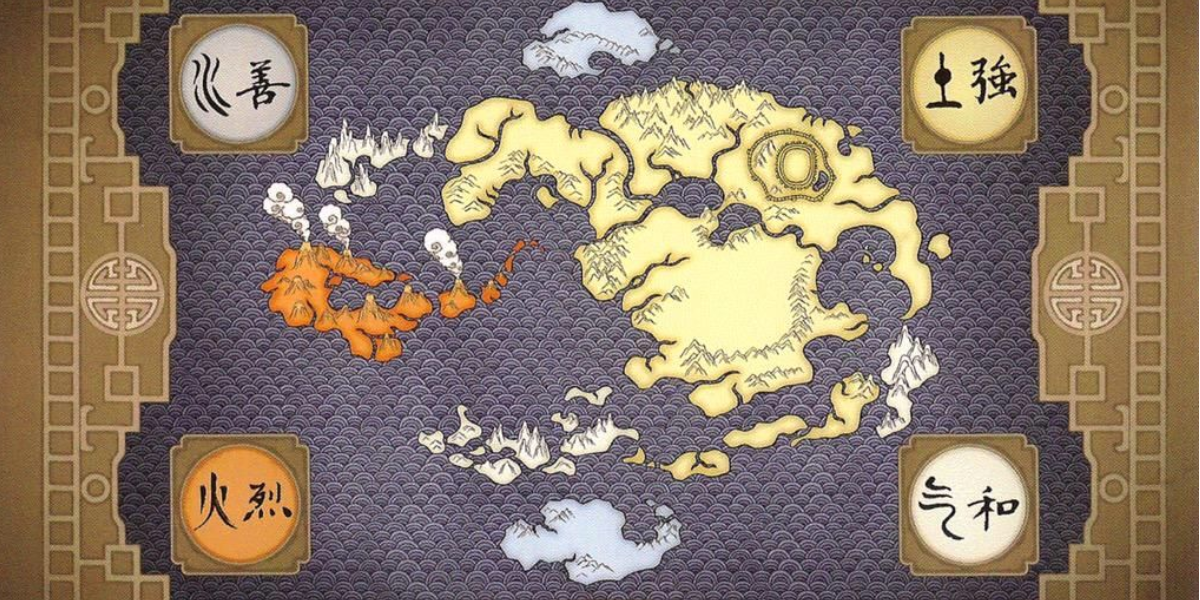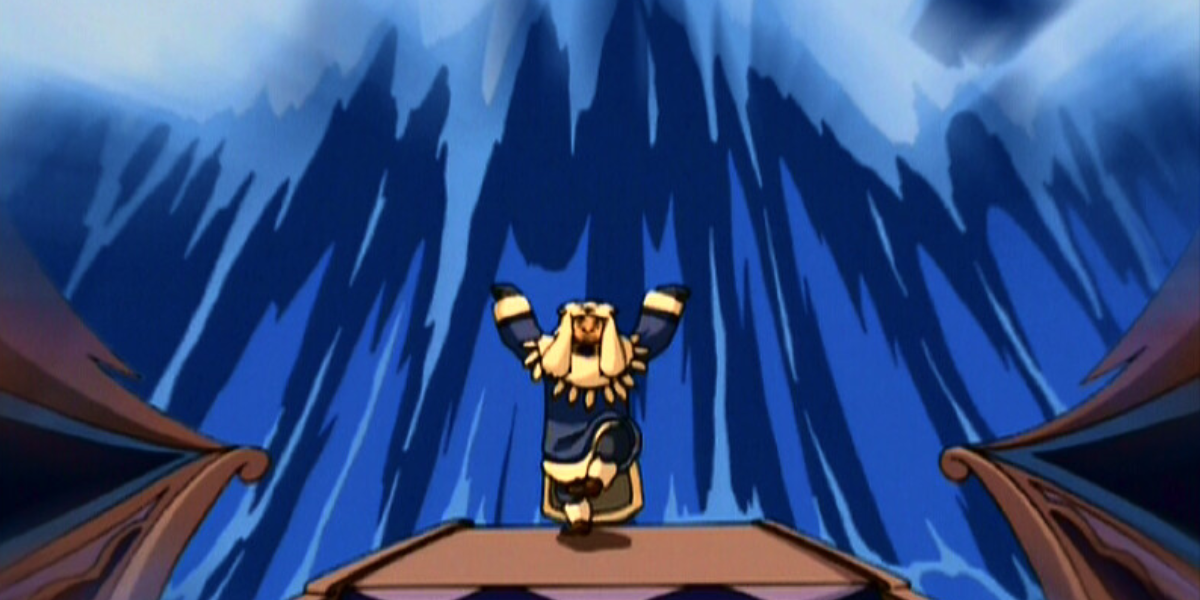The Four Nations used to live in harmony, but when Avatar: The Last Airbender begins, the Fire Nation attacked and threw the world into peril. Because the Fire Nation eradicated the Air Nomads and almost completely destroyed the Southern Water Tribe, their remaining threat in the Earth Kingdom made it seem clear that the war was really just a competition between which of the two nations was stronger. But don't go jumping to conclusions so fast. The Earth Kingdom may be bigger and the Fire Nation may be badder, but it's the Water Tribe that is truly the most powerful.
It's understandable why the default assumption would be that the Fire Nation was the strongest. After all, they held the winning edge in a worldwide war for 100 years, employing vastly superior technological advances, strategically timed strikes and a cohesive and highly disciplined military force. Whereas most of the other Four Nations were still using wooden structures, the Fire Nation mass-produced forged metal for tanks and ships that constituted the strongest naval force in the world.
But the Fire Nation's main advantage in the war wasn't their raw power as much as the advantages afforded by preparation and surprise. Fire Lord Sozin began plotting the war long before making the first strike, held only at bay by his old friend Avatar Roku warning him against taking action. When the time finally came, the Fire Nation struck before any of the other nations were prepared. The pacifistic Air Nomads were obliterated first and the rest of the world caught off guard. But landing a sucker punch that leaves the rest of the world reeling doesn't equate to power.
When looking at the strength of a nation it's important to consider its size, and by that metric, the Fire Nation had immense difficulty. Contained primarily to a string of volcanic archipelago, the Fire Nation had a hard time holding onto territory because they could not support occupation too far extended from their limited borders. This left their defeat of the Southern Water Tribe incomplete, and their campaign against the Earth Kingdom a game of whack-a-mole.
Of course, the Earth Kingdom being the largest nation does not necessarily make them preferable to the Fire Nation in terms of strength. Their disunity among the various cities and territories stretching across the vast borders greatly hindered the Earth Kingdom, and their greatest achievement was purely defensive in that they held out for so long. Even then the Earth Kingdom ultimately failed, as Azula's coup against Ba Sing Se brought down the capital after Omashu and many other major regions were already conquered.
The Shadow Of Kyoshi Has Big Things In Store For Avatar: The Last Airbender
This brings us to the Water Tribe. Although the near-complete destruction of the Southern Water Tribe left them in a disadvantaged position in the water, what remained proved a valuable fighting force. Not only were Sokka and Katara some of the most vital figures to the Fire Nation's defeat out of anyone in the world, but their father Hakoda and his warriors were a crucial military force throughout the latter stages of the war. Even Hama, a war prisoner, managed to escape and single-handedly terrorize a Fire Nation village.
That's the next most important consideration when looking at the Water Tribe's power as a nation: their power as individuals. Katara alone resisted the Fire Nation navy with tidal waves and walls of steam, and with the Foggy Swamp Tribe's aid took the war to a revolutionary frontier with working submarines that helped invade the Fire Nation Capital on the Day of the Black Sun. And yet the Fire Nation's own efforts to invade the Water Tribe's largest stronghold in the North proved ultimately fruitless.
The Northern Water Tribe's resistance of the Fire Nation throughout the war perhaps best illustrates the power of their country as a whole. Aided by their harsh climate and fortified defense, the Northern Water Tribe managed to achieve what even Ba Sing Se ultimately failed at: successfully staving off takeover throughout the entire war. The Water Tribe had both offensive and defensive achievements throughout the war that proved they truly were the best balance of both qualities.
Such a balance and a willingness to change even allowed them to quickly industrialize following the war, following the unprecedented unity between the two tribes in the Era of Korra it's quite possible that the Water Tribe continues to be the strongest of the Four Nations even to the latest time in the chronology. Everything may have changed when the Fire Nation attacked, but nobody adapts to change better than the Water Tribe.


